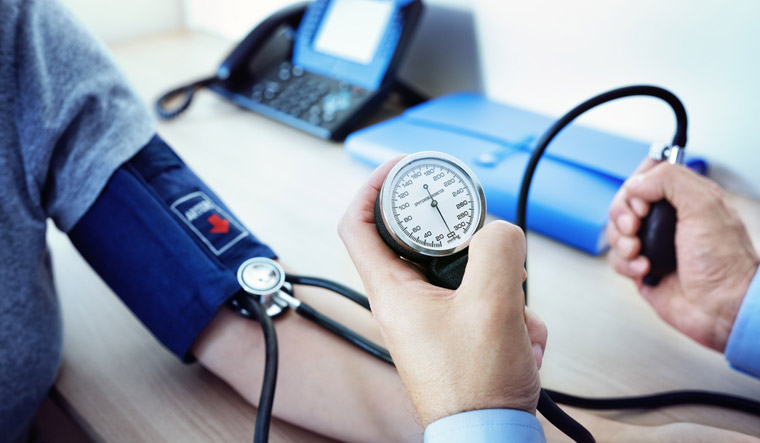Researchers have found that reducing sodium intake can lower blood pressure for nearly everyone, including those already taking blood pressure medications.
The study involved middle-aged to elderly participants and revealed that by reducing salt intake by just one teaspoon a day, systolic blood pressure declined by approximately 6 millimeters of mercury (mm Hg). This reduction is comparable to the effect achieved by commonly prescribed first-line medications for high blood pressure.
Dr. Deepak Gupta, associate professor of medicine at Vanderbilt University Medical Center and co-principal investigator of the study, highlighted the significance of the findings. "We previously didn't know if people already on blood pressure medication could actually lower their blood pressure more by reducing their sodium," he said. However, the results showed that 70-75% of all individuals, regardless of their medication use, experienced a reduction in blood pressure by lowering sodium intake.
The study, conducted by Northwestern Medicine, Vanderbilt University Medical Center, and the University of Alabama at Birmingham, is particularly significant as it is one of the largest to investigate the impact of reducing sodium in the diet on blood pressure, specifically among individuals with hypertension who are already on medications.
Norrina Allen, professor of preventive medicine at Northwestern University Feinberg School of Medicine and co-principal investigator, emphasized the importance of sodium reduction, stating, "It can be challenging, but reducing your sodium in any amount will be beneficial."
High blood pressure is a leading cause of morbidity and mortality worldwide, contributing to heart failure, heart attacks, and strokes. By taking steps to lower sodium intake, individuals can improve their heart's ability to function effectively and pump blood.
The study involved middle-aged to elderly participants from Birmingham, Alabama, and Chicago, who were randomly assigned to either a high-sodium diet (2,200 mg per day) or a low-sodium diet (500 mg per day) for one week. Afterward, they switched to the opposite diet for another week.
Results showed that systolic blood pressure was significantly lowered by 7 to 8 mm Hg when participants followed the low-sodium diet compared to the high-sodium diet, and by 6 mm Hg compared to their usual diet. Overall, 72% of participants experienced a decrease in systolic blood pressure on the low-sodium diet compared to their usual diet.
Dr. Gupta highlighted the consistent blood pressure-lowering effect across all individuals, regardless of their blood pressure status or medication use. This indicates that reducing dietary sodium can have a positive impact on blood pressure for everyone.
Although the American Heart Association recommends a daily sodium intake below 1,500 milligrams, this study aimed to reduce sodium intake even further. However, any reduction in sodium intake can bring about beneficial effects on blood pressure.


